Retail reconciliation Just in time for the holidays, Southern Chiefs compile First Nation shopping guide
Read this article for free:
or
Already have an account? Log in here »
To continue reading, please subscribe:
Monthly Digital Subscription
$0 for the first 4 weeks*
- Enjoy unlimited reading on winnipegfreepress.com
- Read the E-Edition, our digital replica newspaper
- Access News Break, our award-winning app
- Play interactive puzzles
*No charge for 4 weeks then price increases to the regular rate of $19.00 plus GST every four weeks. Offer available to new and qualified returning subscribers only. Cancel any time.
Monthly Digital Subscription
$4.75/week*
- Enjoy unlimited reading on winnipegfreepress.com
- Read the E-Edition, our digital replica newspaper
- Access News Break, our award-winning app
- Play interactive puzzles
*Billed as $19 plus GST every four weeks. Cancel any time.
To continue reading, please subscribe:
Add Free Press access to your Brandon Sun subscription for only an additional
$1 for the first 4 weeks*
*Your next subscription payment will increase by $1.00 and you will be charged $16.99 plus GST for four weeks. After four weeks, your payment will increase to $23.99 plus GST every four weeks.
Read unlimited articles for free today:
or
Already have an account? Log in here »
Hey there, time traveller!
This article was published 17/12/2021 (1452 days ago), so information in it may no longer be current.
When customers enter Keith Proulx’s shop, their conversation might revolve around the moccasins or mukluks they’re about to purchase.
Sometimes, though, they turn to the Cree-Ations and Artist Showcase owner to discuss residential schools and reconciliation.
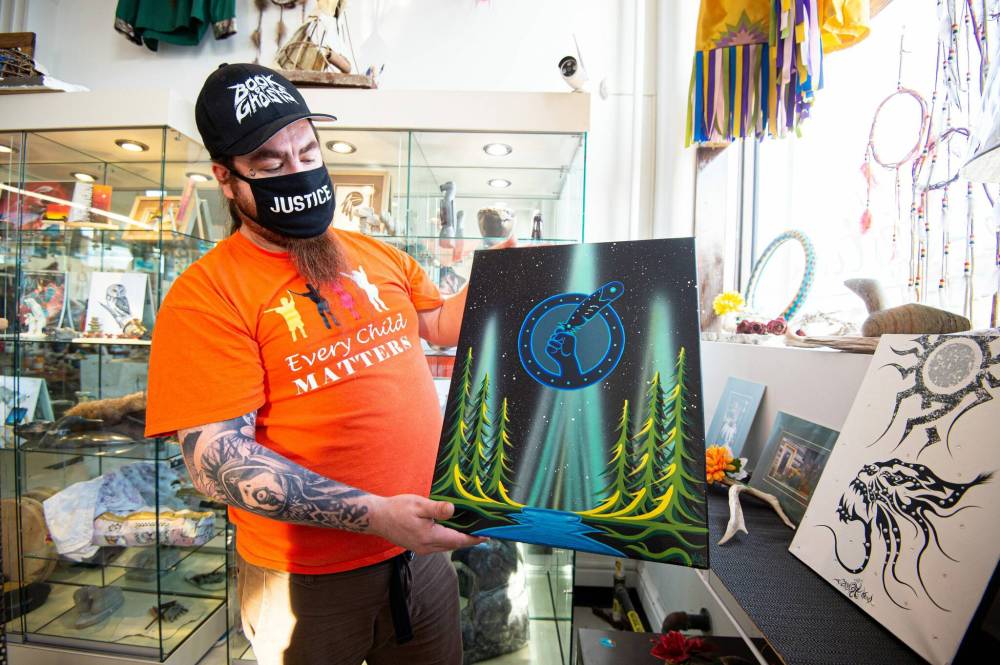
“You’ve got to keep talking about it,” Proulx said. “It’s always in our hearts that we need to talk about it, because that’s the only way (you) can reconcile with yourself and your family.”
The store, located at 586 Main St. in the Exchange, is one of 23 businesses to be featured in the Southern Chiefs’ Organization’s First Nation shopping guide — out in time for the holiday season.
Buying from local Indigenous entrepreneurs is one step towards reconciliation, according to makers.
“The more people are buying from Indigenous places, buying things that people see as Indigenous, it’s just more spreading the word, the good things about (the culture),” Proulx said.
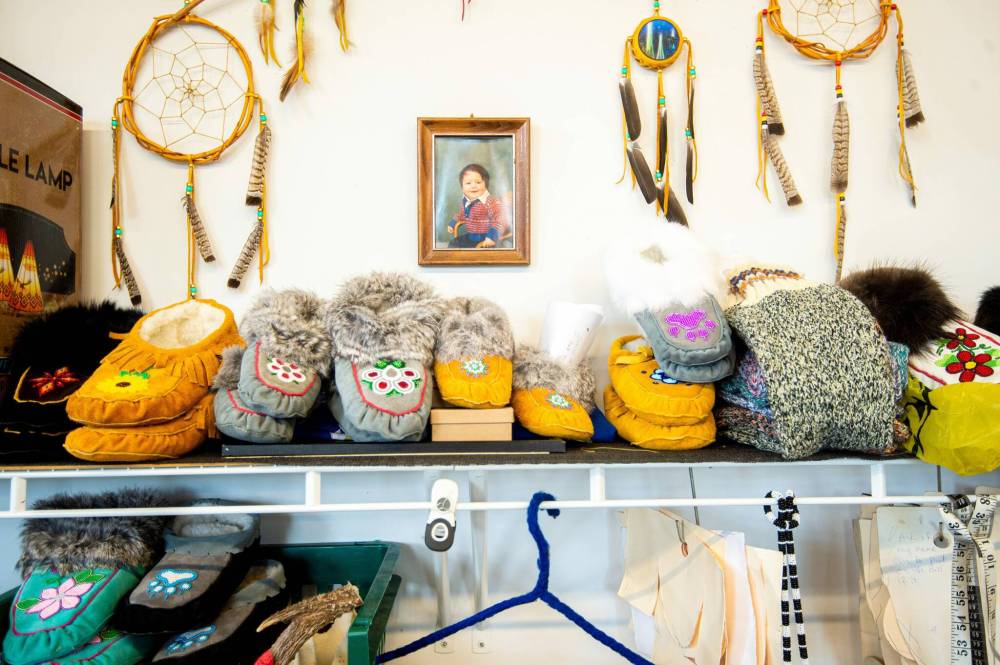
It isn’t his job to be a historian or spokesperson for his race. However, he doesn’t mind when customers ask questions. His grandparents were in residential school, and sharing is healing, he said.
People across the continent are sporting Anishinaabe florals on their Anishinaabe Bimishimo tuques and sweaters.
Emilie McKinney’s business, founded out of Swan Lake First Nation, is on the SCO’s list. Her shop’s website crashed continually when her apparel line launched in May — everyone was ordering at once, she said.
First Nation shopping guide
Businesses on the Southern Chiefs’ Organization’s First Nation shopping guide
– Anishinaabe Bimishimo
– Anishinaabe Girl Designs
– Anne Mulaire
– Boreal Workshop
– Chantal Daniels
– Crafting with Grace
– Cree-Ations & Artist Showcase
– Dreamcatcher Promotions
– Ikwe Creations
– INAC – Indigenous Nations Apparel Co.
– Indigo Arrows
– JDM Indigenous Designs
– MANTiC
– Medicine Garden Society
– Nativelovenotes
– Nimis Creations
– Nishiin Designs
– Red Rebel Armour
– Red Road Clothing
– RezGal Lashes
– Sharecuterie
– Teekca’s Boutique
– Turtle Woman Indigenous Wear
“Once we restock them, they go back out of stock again,” she said, adding she’s made a new, more traffic-friendly website.
The creator began manufacturing jingle cones in 2017, at 16 years old. When the pandemic brought a halt to ceremonies and most of McKinney’s sales, she looked to clothing.
“I figured, why don’t we base it on our (Anishinaabe) florals, the apparel line, to bring more cultural significance,” McKinney said.
It means something, to see people wearing the prints out and about, she said.
“We weren’t allowed to practise our ceremonies or to even be a part of our culture for so many years.” – Emilie McKinney
“We weren’t allowed to practise our ceremonies or to even be a part of our culture for so many years,” McKinney said. “Being able to publicly wear a piece of clothing (with these designs)… It really is such a beautiful thing to see.”
Some non-Indigenous companies are creating knock-off cultural products, from home accessories to fashion pieces.
“It’s better to support Indigenous artists and entrepreneurs that sell real Indigenous art and real Indigenous goods,” McKinney said. “People are (then) helping promote the Indigenous economy.”
Cassandra Carreiro has been subtly introducing Manitobans to Indigenous culture through her charcuterie board business.
“I think I’ve gotten quite a few people hooked on bannock,” the Sharecuterie owner said.
Her SCO-promoted business began in October of 2020 — she had more down time during the pandemic, as a psychiatric nurse, and a friend convinced her to turn her love of creating meat and cheese assortments into a side hustle. 
“When I started, honestly I didn’t know how it was going to go,” she said. “I thought I’d sell boards to my friends and family, but I guess it was right place, right time.”
Sharecuterie took off — now, Carreiro is serving up platters as a full-time job.
“Right away, I said that it’s Indigenous owned, because visibility for me is just super important, to see Indigenous people in successful positions,” she said.
She doesn’t know anyone with a background like hers in the charcuterie business. That’s brought its own barriers and challenges, Carreiro said.
She hopes to set an example for others as Sharecuterie grows.
“Especially with everything that’s happened over the past year, I think people are more aware of supporting BIPOC businesses,” Carreiro said. “You’re helping Indigenous people succeed, and then other Indigenous people see those people succeed and maybe think, ‘Hey, I can start that.’”
“I think it absolutely does add to reconciliation.”
Gerri Pangman and her sister Kim create dreamcatchers, jewelry and ornaments to honour their sister Jennifer, who was murdered in British Columbia in 2013.
“I always say we do this to keep her spirit alive, and every person that has a dreamcatcher ornament, you have a part of her.” – Gerri Pangman
“I always say we do this to keep her spirit alive, and every person that has a dreamcatcher ornament, you have a part of her,” Pangman said.
JDM Indigenous Designs, the family’s business (only accessible via Facebook), is another of the SCO’s holiday presentations.
A set of earrings can take eight hours to weave. Ornaments, which are worked on and set aside in intervals, are months-long processes.
“When people buy off Indigenous artists, it’s respecting the artist and the craft,” Pangman said.
The sisters donate a portion of their revenue to Ka Ni Kanichihk, which supports families of missing and murdered Indigenous women and girls. JDM bestowed four bursaries of $250 to students affected by MMIWG cases last year.
The SCO’s First Nation shopping guide is available at scoinc.mb.ca.
gabrielle.piche@winnipegfreepress.com
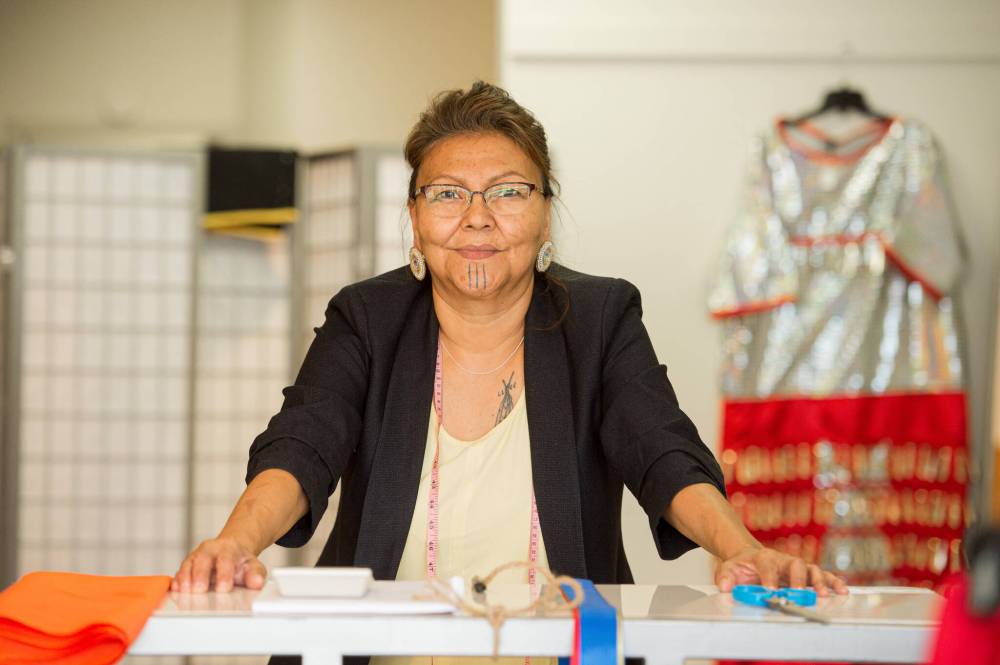

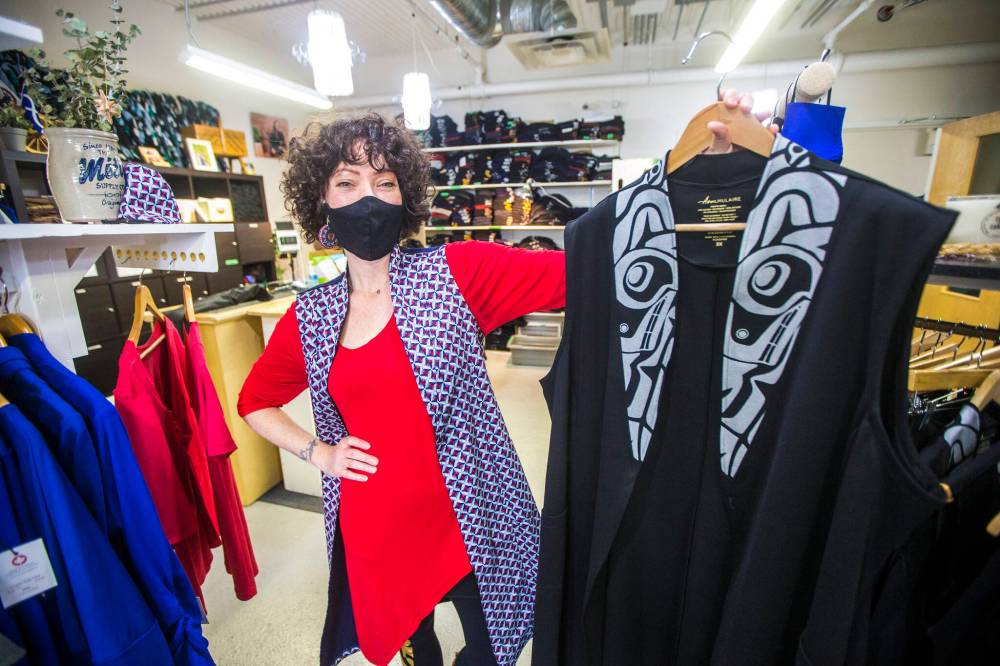

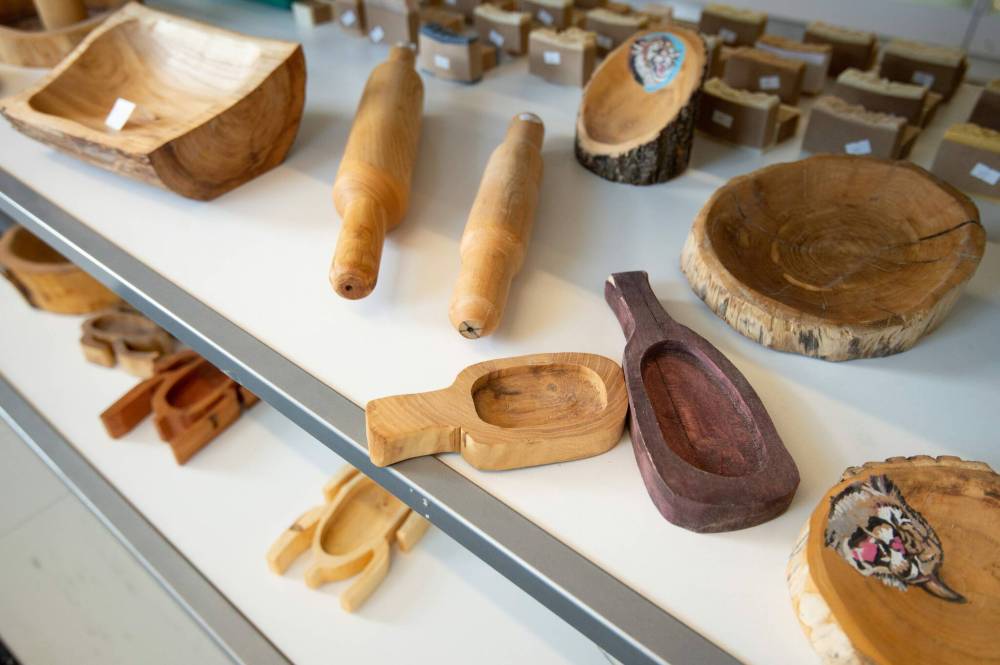
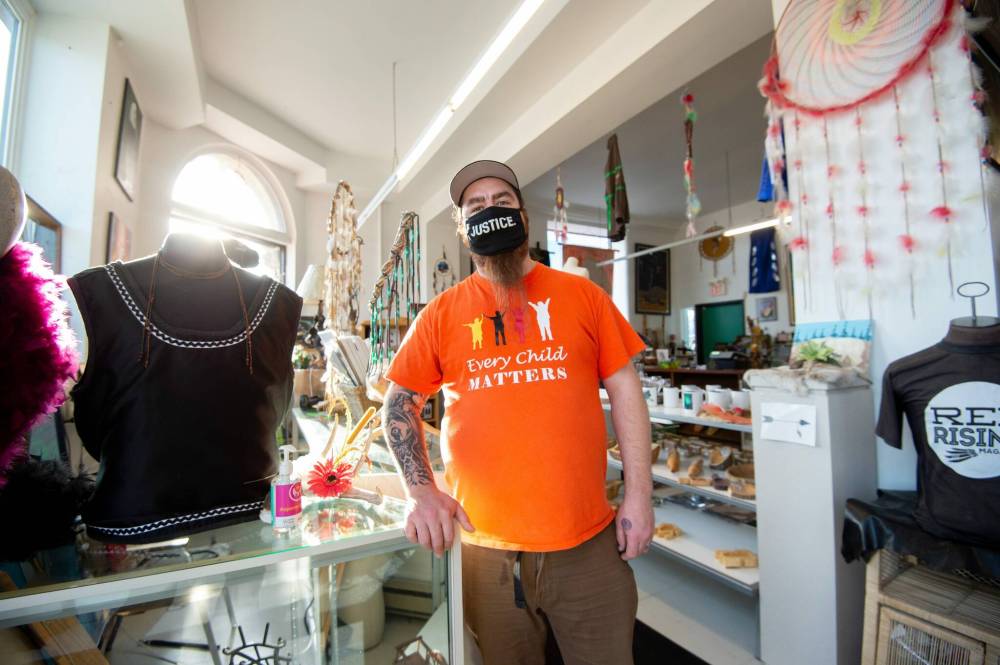
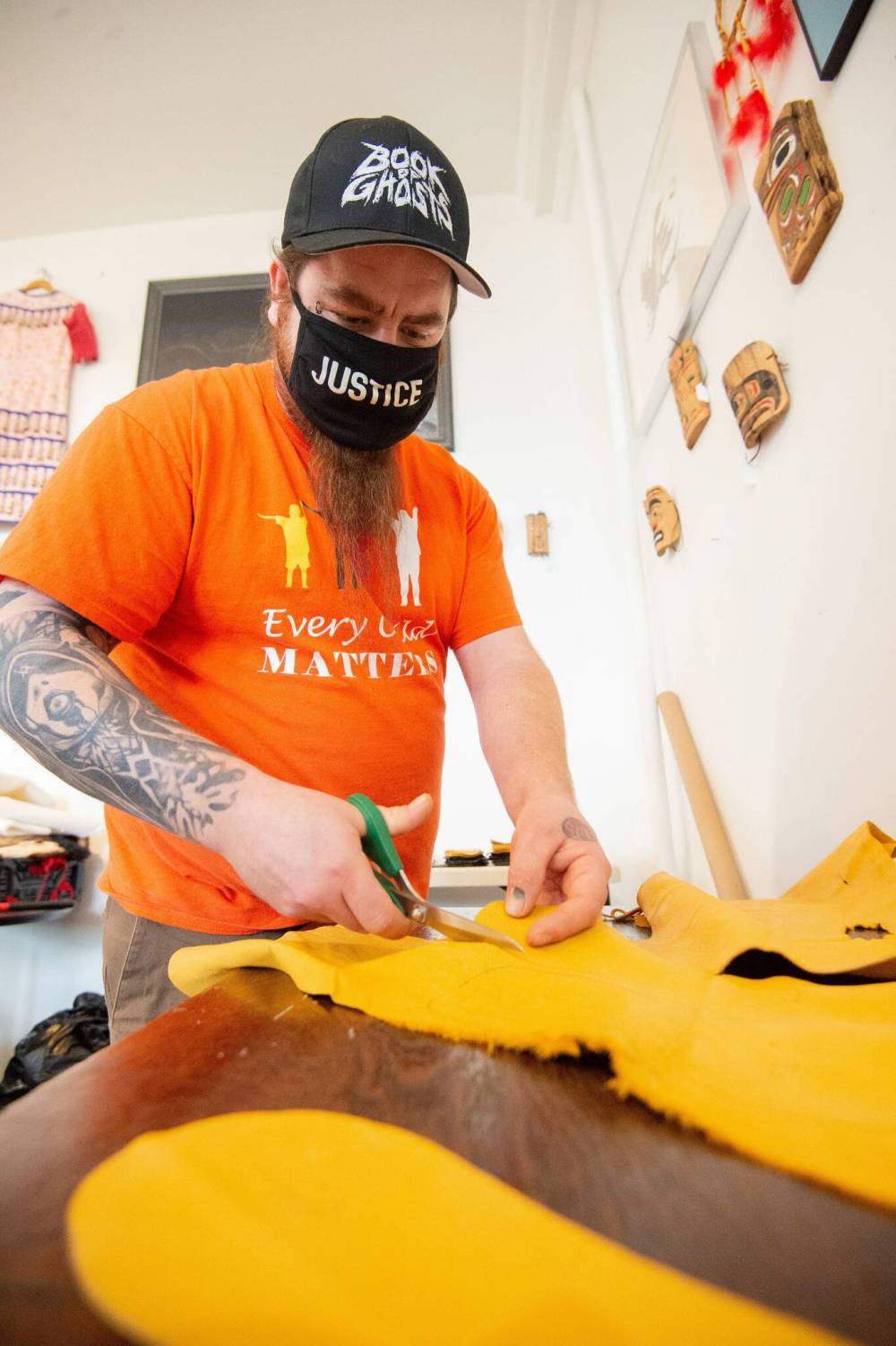

Gabby is a big fan of people, writing and learning. She graduated from Red River College’s Creative Communications program in the spring of 2020.
Our newsroom depends on a growing audience of readers to power our journalism. If you are not a paid reader, please consider becoming a subscriber.
Our newsroom depends on its audience of readers to power our journalism. Thank you for your support.


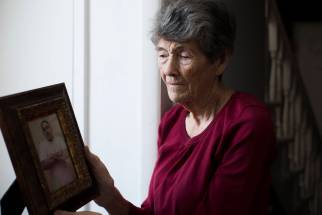
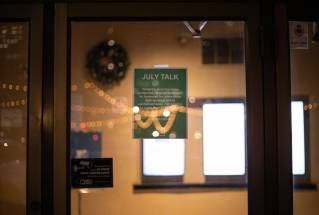
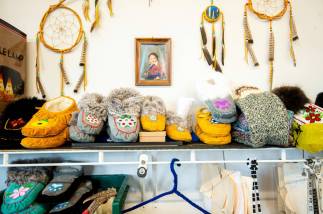


.jpg?h=215)